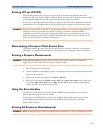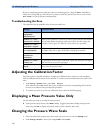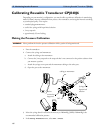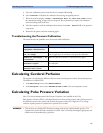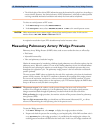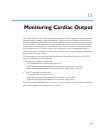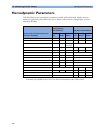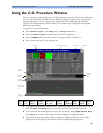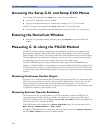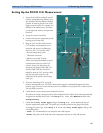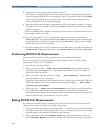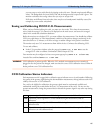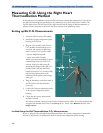
161
13
13Monitoring Cardiac Output
The Cardiac Output (C.O.) measurement invasively measures cardiac output and other hemodynamic
parameters using a technique called thermodilution. This can be used to determine the flow rate of a
system by introducing a cold solution into the system and measuring the resulting drop in temperature
at a downstream site. The temperature change is displayed as a curve in the C.O. procedure window,
and the monitor calculates the C.O. value from this curve. The C.O. value is inversely proportional to
the area under the curve. As cardiac output varies continuously, a series of measurements must be
carried out to achieve a reliable C.O. average value. Always use the average of multiple thermodilution
measurements for therapy decisions.
The measurements can be carried out using the right heart thermodilution method or the PiCCO
method (transpulmonary thermodilution).
• The right heart method is available with
– C.O. module M1012A, standard and option #C10
– M3012A Hemodynamic Measurement Server Extension, options #C05 and #C10
– M3014A Capnography Measurement Server Extension, option #C05 and #C10
• The PiCCO method is available with
– C.O. module M1012A, option #C10
– M3012A Hemodynamic Measurement Server Extension. option #C10
– M3014A Capnography Measurement Server Extension, option #C10
The PiCCO method additionally lets you measure Continuous Cardiac Output (CCO) by performing
pulse contour analysis on the blood pressure waveform.



